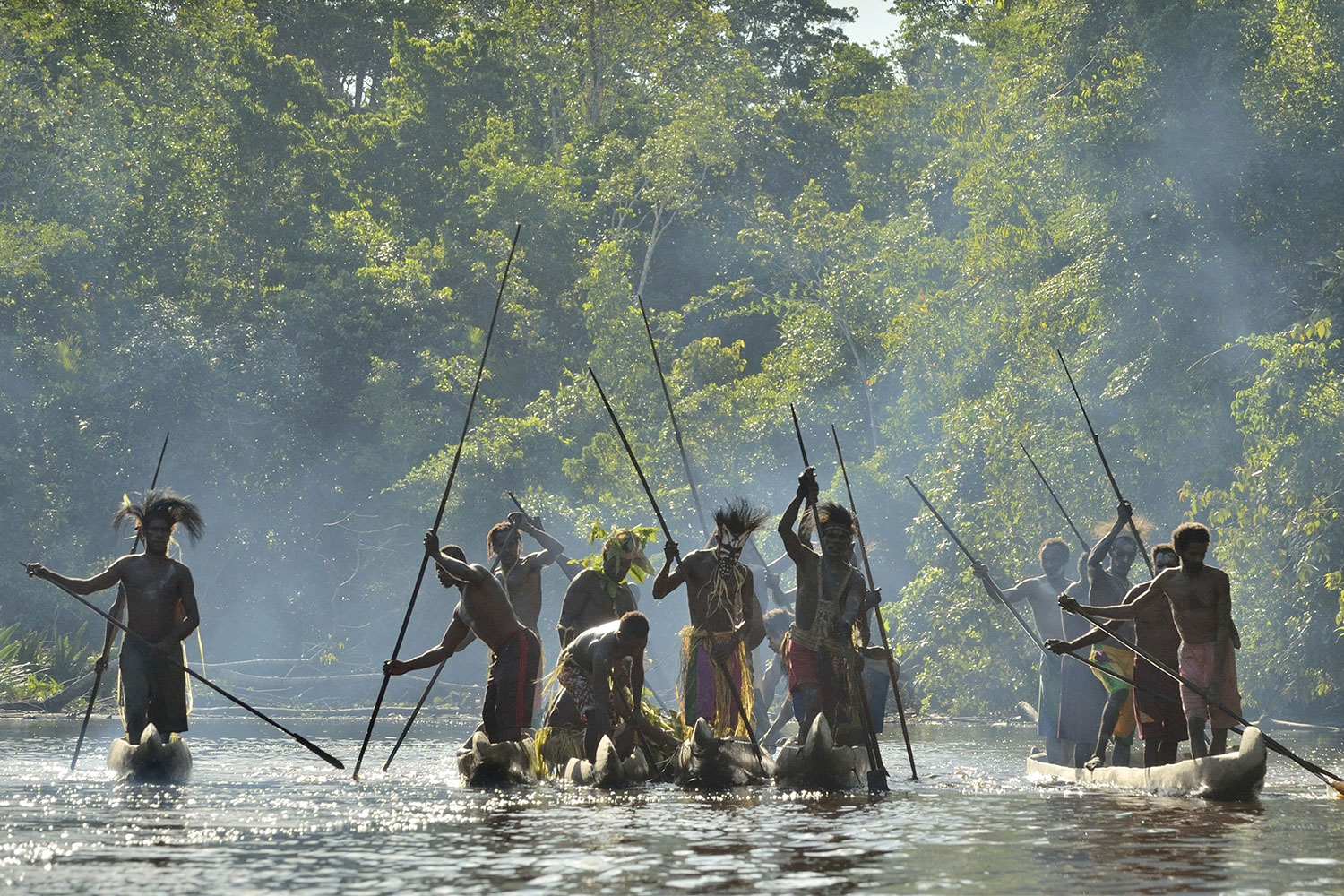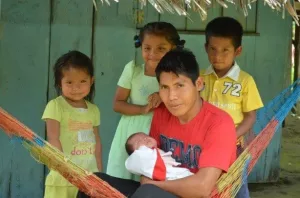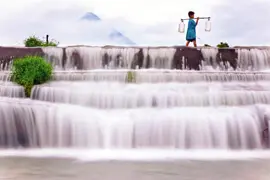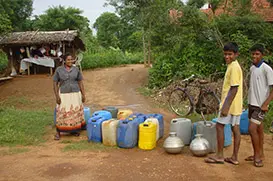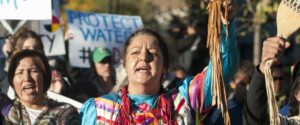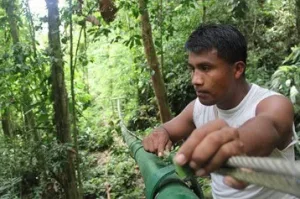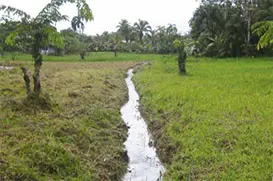heading
PROJECT: UNDP-SIWI WATER GOVERNANCE FACILITYIndigenous people
In many parts of the world, indigenous peoples face systemic discrimination and ongoing exclusion from political and economic power, resulting in ongoing marginalization. Despite such marginalization, indigenous peoples continue to play an important role in the stewardship of local land and waters, and it is recognized that territorial lands looked after by indigenous peoples are incredibly important for biodiversity and water resources.
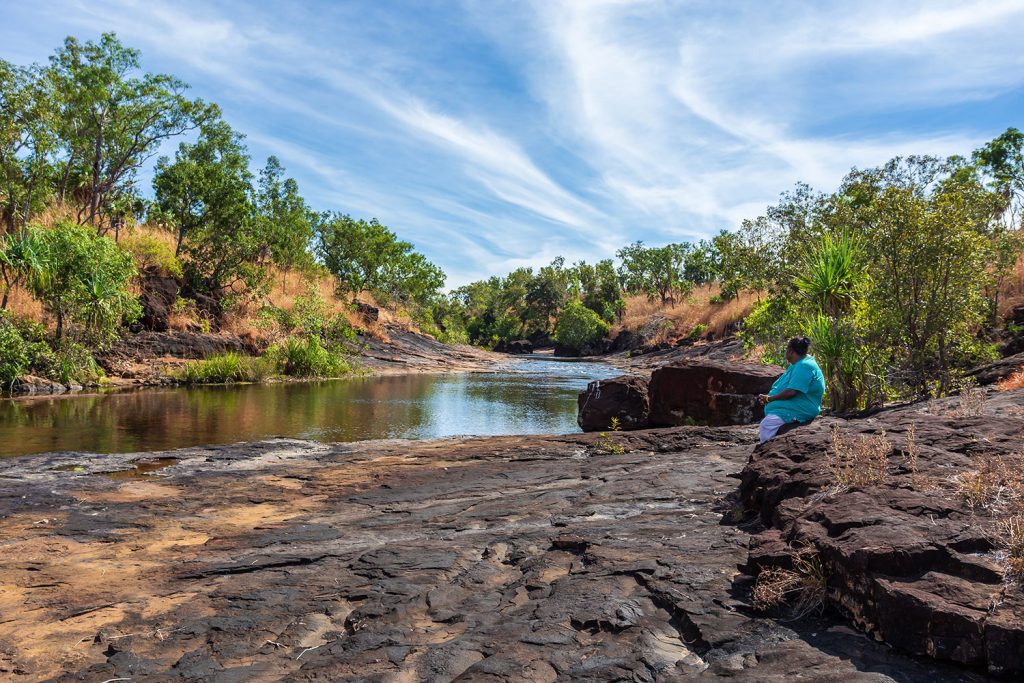
It is estimated that more than 5,000 distinct indigenous peoples remain today, comprising approximately 475 million individuals, living in more than 90 countries. Most of the indigenous peoples live in developing countries, especially in Asia, but there are also several peoples living in countries like the US, Australia, Canada, Sweden, and New Zealand. It is estimated that the territorial lands of indigenous peoples cover approximately 38 million square kilometres.
Indigenous peoples are often marginalized which plays out in outcomes such as poor access to water and sanitation services and in poor health outcomes. However, indigenous peoples’ stewardship of natural resources is being increasingly acknowledged.
Indigenous peoples’ relationship to water is strongly bound to their worldview and knowledge, with water often seen as a sentient being related through kinship ties. Human needs must be in balance with needs of the land including plants, animals, and spirits, with every part having its role to play.
Goal
By recognizing and including indigenous peoples’ knowledge, practices and institutions, it is possible to develop sustainable and culturally appropriate water services and conservation and management systems, with a view to promoting pluralistic approaches incorporating different worldviews.

The challenge
Many indigenous communities have little say on the management of water resource upon which they rely or have an inherent obligation to protect. The root cause is often a lack of understanding and recognition of indigenous peoples’ worldviews, governance approaches, rights and obligations, or opportunities to integrate different knowledge systems. As a result, the supply of water and sanitation services are less effective and sustainable in rural indigenous peoples’ communities, especially if such services are offered without understanding local context.
Some of the main challenges facing indigenous peoples in respect to water include:
- A failure to recognize the importance of relationships between indigenous peoples and their land and waters, and how those relationships define local water governance.
- Impacts from climate change that will have a disproportionate impact on indigenous peoples due to their strong reliance and connection to local environments.
- A failure to acknowledge local voices or knowledge or give these equal weighting in decision-making when addressing environmental challenges.
- The imposition of new and non-sustainable water governance organizations that are not constructed within the local knowledge or institutions, and therefore may lack legitimacy or try to impose one worldview over others.
- A failure to acknowledge the impacts of colonialization, whether on geographic territories or the construction and use of knowledge.
- A failure to acknowledge differences in the appropriateness of different water and sanitation options within culturally acceptable frameworks.
Applied research
Many indigenous peoples have strong connections to specific territories and maintain living approaches that, to a large extent, depend on their local environment. Such connections embody important relationships between people and their environment. Understanding and learning from indigenous peoples on how such relationships are maintained provides an important opportunity for the water community to re-imagine their relationships with water bodies. For example, this includes learning about how concepts such as stewardship, respect, reciprocity, and relatedness are interwoven into water governance and are applied in practice through complex systems of management based upon relationships.
WGF strives to:
- Contribute to building knowledge about the use of pluralistic platforms that recognize indigenous people’s rights and obligations in respect to their territorial lands.
- Contribute to the knowledge about the links between indigenous peoples’ rights and sustainable and equitable water governance through applied research.
Enhancing participation
Based on the participatory research of the project Towards Transcultural Transparency, carried out in collaboration with the Millennium Development Goals Achievement Fund (MDG-F) and University of the Autonomous Regions of the Nicaraguan Caribbean Coast (URACCAN), WGF has formulated recommendations on how rural WASH projects can effectively integrate an intercultural approach with the aim of generating more sustainable and cost-effective sanitation and water services, designed and operated in a way that meets the needs and aspirations of indigenous peoples. These recommendations were piloted in the GoAL WASH project in Paraguay in collaboration with the Institute for Indigenous Peoples.
In 2014 WGF conducted a global mapping of water conflicts between industrial water users and indigenous peoples. The results of the mapping were presented in a World Water Week seminar co-convened with the International Work Group for Indigenous Affairs. Cases of successful collaboration between industry and indigenous peoples were explored to examine how enhanced participation can contribute to better water governance.
WGF strives to:
- Facilitate dialogues and increase the awareness about indigenous peoples and their waters by linking actors and building partnerships that support indigenous people’s role in water governance.
- Support improved, culturally relevant, water governance and meaningful engagement by developing and promoting intercultural approaches.
- Provide technical support to development actors on the implementation of respectful and inclusive water governance processes that is pluralistic in nature.
Indigenous people & water
Indigenous peoples are the custodians of many of the world’s most fragile and important ecosystems. They also possess invaluable knowledge about sustainability and resilience, so they have a vital role in protecting our environment.
Know more about indigenous people & water